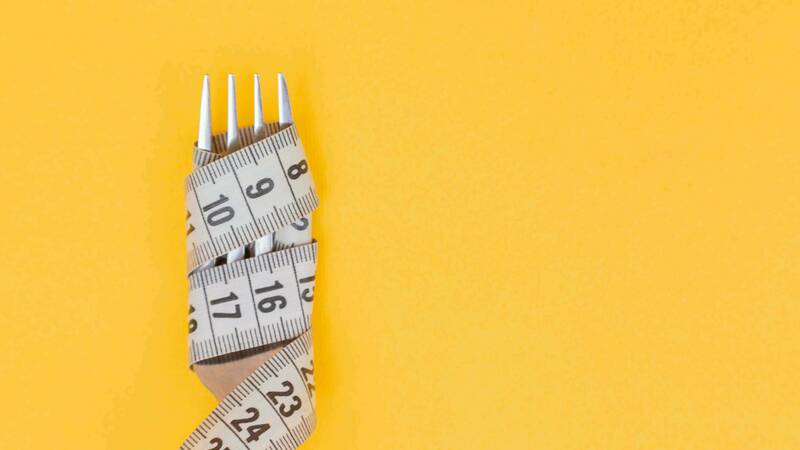Whenever my alarm clock would ring at 5:30 AM on a Tuesday, I knew it would be a long day ahead for me. I would sometimes feign sickness to my mother in hopes that my apparent malady would be a sufficient conviction for her to allow me to rest at home that day. Nevertheless, my efforts often proved futile, and I would have to go and pack my swimming costume and board the bus, dreading the day ahead. Tuesdays were swimming days back in my primary school, and being a kid who had grown up obese, I dreaded the impending mimicry from my classmates whenever I was required to take my shirt off—revealing my belly fat and man boobs. Had I told my mother this when I was a child, she would have sympathized with me; however, with a lot on her plate, I did not want to give her the additional burden that her child was being bullied in school.
I was born at 3.7 kilograms on the 25th of April 2002. At the time, the average baby weight was 3.3 kilograms, meaning I was born overweight. Two weeks after my birth, my family relocated to Tanzania, where my father had secured his formal employment. I recall how my mother would always cite the stories of my childhood, but one instance lingers in my head. She tells me that as they were boarding the plane to Dar es Salaam, a lady from the UK was shocked by my appearance and thought I had mumps due to my swollen cheeks. Turns out, however, it was just me. In preschool, I was nicknamed “Chubby Cheeks” for manifest reasons, and although my chubby cheeks were accompanied by the notion of cuteness, I always attracted unwanted stares.
Just as I avoided swimming, gym class was no solace, given the extreme intensity that was expected of me. “Why can’t you drop down and give me ten pushups?” Mr. Jarred, my PE teacher would exclaim as he watched my frail arms succumb to the weight of my body, unable to perform a pushup. My eyes grew bloodshot from my inability to carry out strenuous physical activity, as I yielded to tears, embarrassed that I had let the team, Mr. Jarred, and myself down. I could sense the frustration in his voice with each iteration. My heart palpitated wildly as I stood up, willing myself not to cry again. I would keep trying to do one pushup, hoping that my evident inability to perform one rep would be a sufficient excuse for him to exempt me from carrying on with the exercise. Unfortunately, he was incessant and would not stop until I did as he commanded. I could never comprehend why Mr. Jarred was so hard on me, and his tone of voice, having a sense of derision within it, did not help my cause. Looking back at it now, I can say with confidence that Mr. Jarred’s actions were abusive, and although he would say that this was for my own good, leaving gym sessions would make me feel worse about myself than I already did.
I often wondered why there existed a certain stigma against fat people—notice my use of the word fat, and not any other euphemistic word such as plump or stout? Despite the negative connotation that many individuals perceive the word to possess, many fat rights activists prefer the word fat and use it as a descriptive term and not as an insult. By adopting and reclaiming the word, this creates an identity which would act as a form of revolution against the fat phobic. “Was it utterly wrong to just have your body covered by a few extra layers of fat than the common person?” I would try to use deep breathing to center myself each time I was met by a microaggression, which unsurprisingly seemed to come about daily. I would be walking to school when suddenly a group of children would crouch and whisper to one another about my body. Joke’s on them though—I could hear their careless whispers! Actually, the joke was always on me because I could hear what they were saying, and it sure did hurt. It was moments like these that rendered other kids repulsive for me, yet they were children. Young children verbalize their thoughts clearly and directly; they are not as tactful as adults when it comes to considering how their words are going to land or impact another person. When it came to adults, however, I expected that they would be more tactful in their words than children. Every holiday back at home in Kenya, my whole extended family would gather at my paternal grandparents’ home for the family feast. Usually, some uncles would make remarks such as, “You should let your cousins serve before you” or, “I see who is finishing all the food in the house” whenever they would see me together with my slimmer siblings.
Joining high school, I started enjoying playing sports much more. In primary school, I would always play goalkeeper for the soccer PE lessons, not by choice, but rather because I was deemed too fat to make any meaningful impact playing infield. To most people’s surprise, however, I was adroit between the sticks, hence transitioning into high school and playing goalkeeper for the school team was a seamless feat. Playing goalkeeper was often a position I looked forward to because it was not as intensive as the infield positions. When it came to training, nonetheless, goalkeeper training was miles harder than infield training. We would do ten sets of suicides, squat diving drills, and core stability exercises that would help us become better goalkeepers. At the time, I felt like giving up because I believed that this was not what I had signed up for. Looking back at it now, I would say that participating in the soccer team was probably one of my best decisions. From 88 kilograms (approximately 200 pounds), I lost weight with the vigorous and intense exercise that was required of us on the soccer team. In addition, my coaches were understanding and did not unnecessarily push me to my limits like Mr. Jarred did. They understood the fact that I was incapable of doing certain exercises, which enabled me to carry on at my own pace.
I often compare my weight loss to a clock. Staring continuously at a clock, you would barely notice the hour hand shifting in position, but with the picture in mind of where the hand was located before stepping away and coming back, it becomes obvious that the hour hand has shifted its position. My immediate family and friends never noticed any change in me, but my distant relatives, who would only see me biannually, noticed a drastic change in my appearance and physique. Subtle comments such as, “You now look like a man” or, “You are no longer a fatso” were perennially thrown my way, and it became customary to hear such remarks. By the end of 2018, I had lost three stone (approximately 40 pounds), and although I did feel slightly better about my body image and appearance, I could not help but think of how the society we live in is anti-fat. Children themselves are not born with an anti-fat mentality but rather it’s their caregivers, families, and peers who propagate these attitudes and beliefs. Instilling such warped values in children from the onset ensures that hostility remains unchallenged. Angela Meadows, a psychology researcher from the University of Birmingham, investigates how, in addition to having an adverse psychological impact, fat-shaming also has a physical impact on those who are subjected to it. The body considers verbal abuse as a threat, and its response is the production of different hormones and physiological changes in different organ systems (Meadows). When this stress is repeated, it can increase the risk of depression, hypertension, and cardiovascular disease (Meadows). This makes me think that, instead of correcting the problem of fat-phobia, we really are perpetuating it.
Being social beings, we are always inclined to want to fit in in whatever situation we come by. It is often imposed on members of the fat community to lose weight—lest we succumb to several diseases that are as a result of obesity. However, the attack by thin people on members of the fat community are incessant. Rather than living in peace and going about our daily activities, fat people walk around knowing they will face discrimination and abuse because of the negative stereotypes associated with being fat. In addition to verbal discrimination experienced by members of the fat community, exclusion from social activities can lead to depression, anxiety, low self-esteem, and poor body image (Snider). Although getting more fit is something we should all strive for due to the physiological benefits we can reap, society must stop instilling an anti-fat attitude in people from a young age to ensure that all individuals have a space where they feel accepted and can thrive.
Having been on both sides of the proverbial coin, I experienced what it was like having to go about my daily activities getting shamed. I developed reclusive habits due to the fear of getting mocked while engaging with others. Nevertheless, despite having lost a lot of weight, I am still the same person I used to be. I have also developed a sense of empathy for those who are mistreated, because I myself was the recipient of bullying. My journey to self-acceptance reminds me of my favorite movie, The Greatest Showman. The movie portrays the protagonist, Phineas Barnum, a ringmaster for his circus Barnum & Bailey. In the movie, Phineas sets out to start a museum which fails, and he ends up recruiting so-called freaks or outcasts of society to perform for his show. Despite the skepticism the show received due to its unique performers, it broke records and became the biggest circus event in the world at the time. My favorite song and personal anthem from the movie is “This is Me” by Keala Settle. She sings: “When the sharpest words wanna cut me down, I’m gonna send a flood, gonna drown ‘em out, I am brave, I am bruised, I am who I’m meant to be, this is me.” Despite being ridiculed and bullied, the performers within the Barnum & Bailey circus were able to prevail and run a profitable business. From them, I sought inspiration and found a small measure of hope and mental fortitude. Despite the various tribulations I have experienced, I hope to inspire anyone who ever feels pushed to the outside or ridiculed to drown out the sharp words thrown their way.
Works Cited
The Greatest Showman. Directed by Michael Gracey, performances by Hugh Jackman, Zac Efron and Zendaya, 20th Century Fox, 2017.
Meadows, Angela. “Discrimination Against Fat People is so Endemic, Most of Us Don’t Even Realize It’s Happening.” The Conversation, 18 Jan. 2021, https://theconversation.com/di... us-dont-even-realise-its-happening-94862
Settle, Keala. “This is Me.” The Greatest Showman, 2017. https://open.spotify.com/track...;
Snider, Tyanna. “The Effects of Weight-Related Bullying.” Nationwide Children's, 18 May 2015, https://www.nationwidechildren...;

